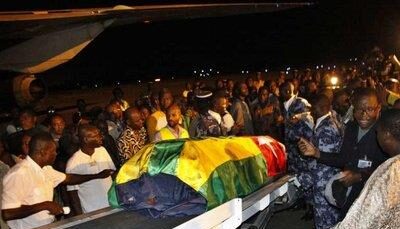Cote d’Ivoire is gearing up to host the highly anticipated Africa Cup of Nations from January 13th to February 11th, with 24 national teams vying for glory.
While the tournament promises thrilling football, it is overshadowed by a dark history of threats, terrorism, and armed attacks, often fueled by political instability across West Africa.
The most notorious incident in the tournament’s history occurred in 2010 when the Togolese national team faced a brutal armed attack on their bus in Angola as they entered the African Cup of Nations.
This tragic event resulted in the death of assistant coach Améleté Abalo and journalist Stanislas Oclo, alongside numerous injuries to delegation members.
Claiming responsibility for the attack, the separatist group Front for the Liberation of Cabinda pledged further operations during the continental championship.
In the aftermath, the Togolese team announced its withdrawal from the Africa Cup of Nations, marking a somber turning point.
The incident also led to the international retirement of Emmanuel Adebayor, a legend of the Togolese national team, who, in his statement, emphasized that the haunting ghosts of the terrifying attack still linger.
The threats continued during the 2022 edition held in Cameroon, with several participating teams, including Tunisia, Mali, Gambia, and Mauritania, receiving explicit warnings from the armed group Brigada Anti Sardinard to expect attacks on the coastal cities of Limbe and Buea.
Despite the concerns, the tournament proceeded as planned, with the organizing committee issuing cautionary instructions to participating teams.
In September 2016, political instability in Gabon cast doubt on its ability to host the 2017 Africa Cup of Nations.
Armed clashes erupted following the presidential elections, leading to casualties and security concerns about the possibility of civil war.
Closely monitoring the situation, the Confederation of African Football (CAF) contemplated relocating the tournament before eventually deciding to proceed in Gabon after gaining control over the situation.
As Africa anticipates another edition of the prestigious tournament, the specter of security threats continues to loom, underscoring the broader challenges faced by the continent.











